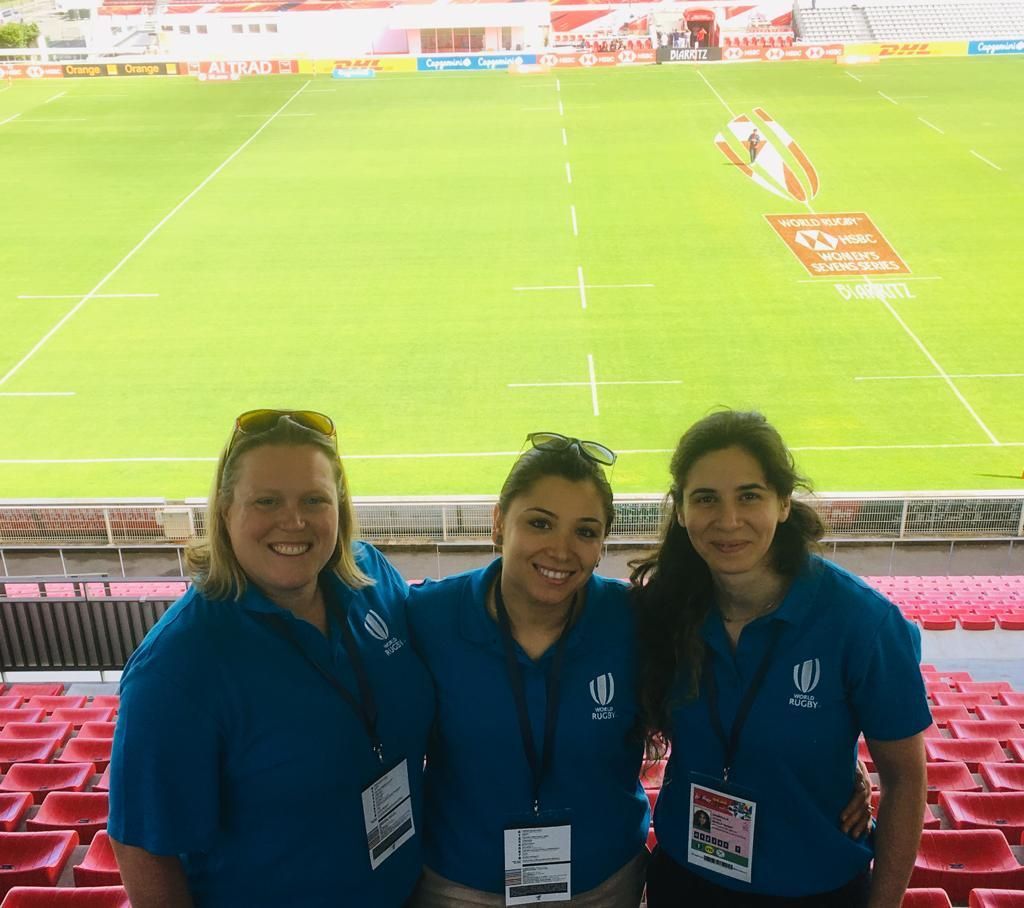Beth Dickens was reading her son a bedtime story “about mice hiding in hats” when an email pinged through offering her the chance to make history this weekend.
Dickens, a former Scotland international prop who won more than 50 caps, has worked on judicial panels in rugby since a colleague nominated her around five years ago.
On Friday, she will sit down in her home office to watch Leicester Tigers take on Montpellier at Twickenham with the European Rugby Challenge Cup on the line.
🗣 “People need to know these opportunities exist and that they give you opportunities in life personally as well as are important for the game."
— Challenge Cup (@ERChallengeCup) May 19, 2021
Beth Dickens will make history this weekend as the first female Citing Commissioner in a European final 🎉https://t.co/cB1j9im384
In doing so, Dickens will become the first woman to work as a Citing Commissioner in a European final.
“It's just amazing,” she told World Rugby. “It's very hard to describe, you just kind of have that little fist-pump moment, don't you?
“It's an honour to be asked to do something like that and to be able to say yes and be part of the game.”
Added pressure
Dickens has had a few weeks to prepare for the biggest match of her citing career, the magnitude of which has put her in the spotlight.
“It certainly adds a little bit of pressure, but only because everyone knows that I'm doing it before I do it,” she added.
“Most of the time when you're citing, no one really knows your name or what you're doing beforehand and you fly under the radar to a certain extent. Whereas, obviously this time around, that's not the case.
“So, if anything does happen, everyone will know who to look towards and yes, obviously, that does add a bit more pressure to the situation.”
Due to COVID-19 restrictions, Dickens will not be at the match in person, and will instead watch the action on TV, with her computer and tablet providing extra screens to examine contentious events in real time.
It is a different process than she was used to before the pandemic, but one she enjoys as it enables her to see the “zoomed-in views” that are broadcast to fans at home.
Once the full-time whistle has blown at Twickenham, Dickens will watch the full match at least once again and will then view any potential incidents of note up to 50 times before making an official citing.
“During the game I'd have made notes of a lot of incidents that have happened,” she explained.
“Most of them, you can just watch one or two more times and you can just see, ‘all right, it's nothing’ very easily.
“But, when there's something that's on the threshold of a citing, either just above it or just below it, I probably would watch that, it would be 10s of times.
“It could easily go to 40 or 50 times, I think, from the various different angles and stuff like that, and speeds and just making sure in my head that I'm completely clear about exactly what happened, in what order and what level of force and stuff is involved.

“And then, obviously, if it is something that needs to go further or that I need to get a bit more evidence, then I would be speaking to the players or the managers or the medical team as well, to gather extra bits of evidence to make a case or not.”
Shooting for the moon
Dickens admits she has always taken an interest in the disciplinary side of the game, and that knowing rugby’s laws was “part of who I was as a player”.
But, she says the experience and know-how she picked up during more than six years in the Scotland front-row has proved invaluable in her current vocation.
“Rugby experience, rugby knowledge is absolutely vital,” Dickens said.
“Being involved in such depth for so long — where it is really part of your life — I think that understanding of how players think and what they might be thinking going into a contact situation really helps you to see things from their perspective, which I think is important when you're starting to judge some of the actions that they're doing.
“But as well, I also think it helps… to understand how they're feeling going out onto the pitch for the big games and stuff like that.
“You've been there, you felt it and I think that just enables you to have empathy for them in a way. Because this has to be judged on the facts in front of you, but I equally think you have to have some level of experience of being there to be able to fully determine what those facts are.
“Because it's never black and white as much as it would be great if it was.”
Dickens represented Scotland at Rugby World Cup 2010 as a player, and was a judicial panel member for the tournament in Ireland four years ago.
She hopes to be involved again when RWC 2021 is staged in New Zealand next year, and has ambitious plans for the future beyond that.
“The short-term target has got to be the women’s Rugby World Cup next year. I'll be completely open and honest, I'd love to be there in some capacity or another,” Dickens said.
“To go back to another women's World Cup in some capacity would be amazing.
“Ultimately, who knows? I'd love to go to a men's World Cup as well, but we'll see whether or not that's possible in the future.
“But, hey, if you don't shoot for the moon, then you never know what you might be able to achieve.”





